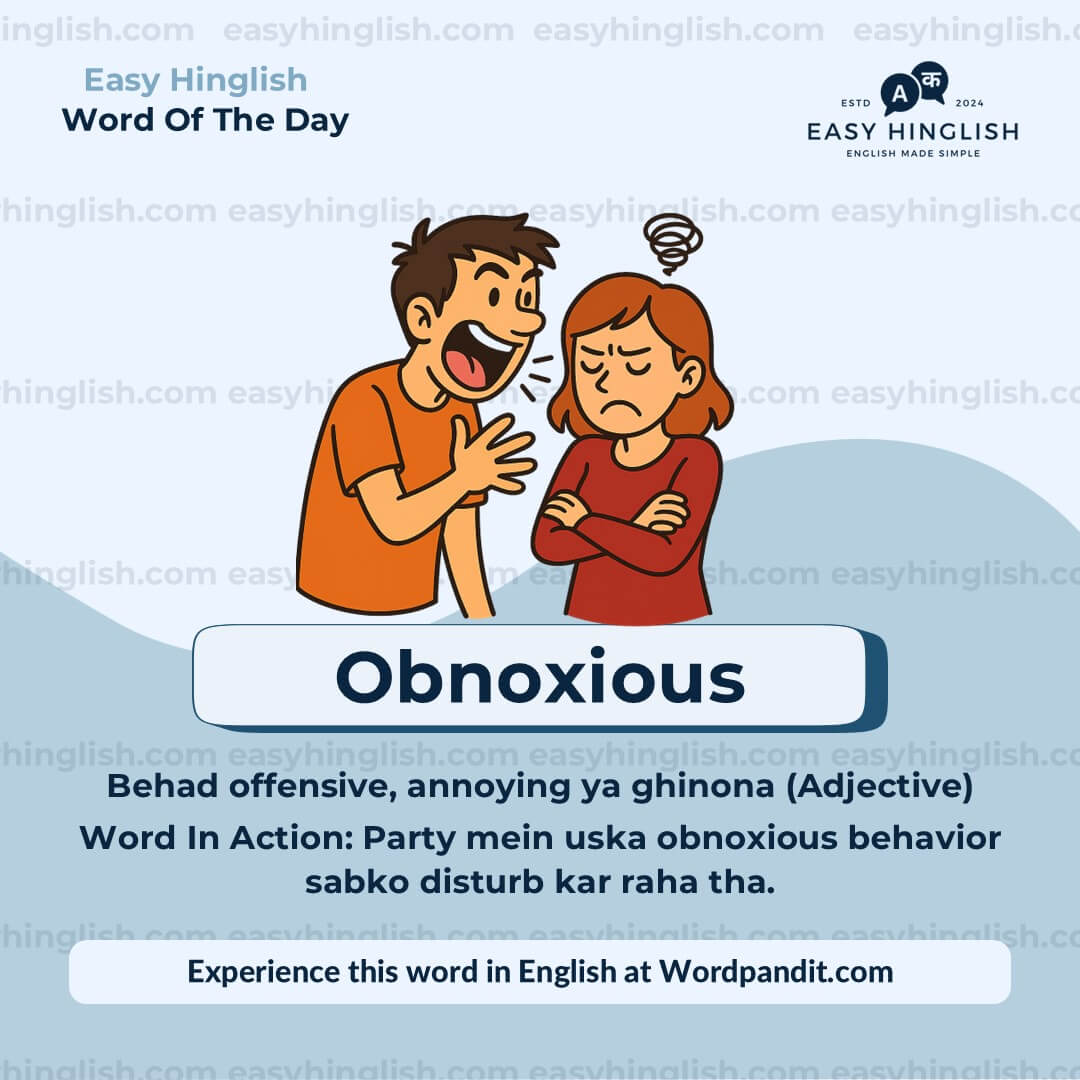Daily Vocabulary Indian Newspapers aur Publications se Seekho
Welcome to Wordpandit ka Indian Vocabulary Hub
Wordpandit par, hum samajhte hain ki ek achhi vocabulary develop karne ke liye local context samajhna bhi zaroori hai. Is section ka focus hai aapke vocabulary ko India ke leading newspapers aur publications se naye shabdon aur phrases ke zariye improve karna, taaki aap practical, relevant, aur uniquely Indian words seekh sakein.
Indian Sources Itne Important Kyun Hain?
Hum maante hain ki kisi bhi language ko sikhne ka sabse best tareeka hai uske local content me immerse hona. Isi wajah se hum carefully words curate karte hain top Indian newspapers aur publications se, jaise:
- The Hindu
- The Times of India
- The Economic Times
- Hindustan Times
- Live Mint
- The Indian Express
- Aur bhi bahut saare...
Hamesha Updated Raho, Hamesha Relevant Raho
Daily updates ke saath, aap Indian news sources se naye words seekhoge jo Indian society aur culture ke latest trends ko reflect karte hain. Hamara focus hai aise words provide karna jo aapke liye real-world me useful ho.
Wordpandit Aapke Learning Goals Ko Kaise Support Karta Hai?
Chahe aap exams ki preparation kar rahe ho, professional communication improve karna chahte ho, ya sirf naye words seekhna chahte ho, Wordpandit har step par aapki madad karega.
Practical Tareeke Se Seekho
Hamari interactive learning methodology me real-world examples, engaging activities, aur context-based usage shamil hain, taaki har naya shabd aapki active vocabulary ka hissa ban sake.
Aaj Hi Indian Vocabulary Seekhna Shuru Karo!
Wordpandit Kyun Choose Karein?
Practical Learning: Aise words seekho jo aapko real-world reading aur communication me sach me kaam aayenge, taaki aapki comprehension aur bolne ki skills improve ho.
Diverse Content: Current affairs se lekar scientific breakthroughs tak, hamare different sources aapko multiple domains ka vocabulary sikhate hain.
Effortless Integration: Wordpandit ko apni daily routine ka part banao. Sirf kuch minute har din dene se aapki vocabulary time ke saath kaafi improve ho sakti hai.
Aapka Vocabulary Mastery Tak Ka Safar
- Regularly hamare Daily Vocabulary section ko visit karo
- Naye words explore karo aur unka context me use samjho
- In words ko apni writing aur bolne ki practice me use karne ki koshish karo
- Jaise-jaise aapke words badhte hain, apni progress ko track karo
Aaj Se Apni Vocabulary Journey Shuru Karo!
Wordpandit ke saath vocabulary improve karna start karo. Roz thoda effort dalne se aap ek strong vocabulary develop kar sakte ho jo academic, professional, aur personal life me kaafi kaam aayegi.
Yaad rakho, ek naya shabd roz seekhna linguistic limitations ko door karne ka best tareeka hai! Wordpandit ko apni daily learning journey ka sathi banao aur vocabulary excellence ki taraf badho!
WORD-1: Decipher
Sandarbh (Context):
"Such is the opacity of India's defence procurement process, he added, that it is difficult to decipher the government's intended pathway in this regard." - The Wire
Vyakhya (Explanatory Paragraph):
Decipher ka matlab hai 'code ya unclear information ko samajhne layak language mein convert karna, ya kisi mushkil cheez ko samajh paana.' Yeh word tab use hota hai jab aap kisi complicated, mysterious, ya deliberately obscure cheez ko samajhne ki koshish kar rahe hon—chahe woh encrypted text ho, confusing handwriting ho, ya complex situations. Decipher ko formal writing, news analysis aur competitive exam passages mein commonly use karte hain jab difficult ya hidden meanings ko samajhne ka process describe karna ho.
Arth (Meaning): Code mein likhi cheez ko normal language mein convert karna; kisi mushkil cheez ko samajhna ya figure out karna (Verb)
Uccharan (Pronunciation): dih-SY-fer (डिसाइफ़र)
Kathinai Star (Difficulty Level): ⭐⭐⭐ Intermediate
Utpatti (Etymology): Decipher prefix 'de-' se aaya hai jiska matlab hai 'reverse' aur 'cipher' Arabic ke 'sifr' se aaya hai jiska matlab hai 'zero' ya 'empty,' jo Medieval Latin mein evolve karke 'secret code' ban gaya. Literally, is word ka matlab hai code ko reverse ya undo karna, use unreadable se clear text mein transform karna. Time ke saath, iska meaning sirf codes break karne se expand hokar kisi bhi difficult ya obscure information ko samajhne tak pahunch gaya.
Prashant Sir Ke Tathya (Prashant Sir's Notes):
Bahut students 'decipher' ko 'decode' se confuse karte hain—dono mein hidden information ko samajhna involve hota hai, lekin decipher ka usage competitive exams mein specifically difficulty aur effort ko emphasize karta hai jo understanding mein lagti hai. Decipher aur interpret mein farak subtle hai: aap kisi cheez ko decipher karte hain jo deliberately unclear ya coded ho, lekin interpret karte hain kisi cheez ko jo multiple meanings ke liye open ho. CAT aur GRE ke students ke liye, decipher frequently Reading Comprehension passages mein dikhta hai jab policy analysis, scientific research, ya political commentary ki baat ho—yeh signal karta hai ki kuch intentionally obscure ya complex hai. Indian newspapers mein aapko aksar phrases milenge jaise "difficult to decipher the government's intentions" jab journalists policy decisions analyze karte hain jahan transparency ki kami hoti hai.
Samanarthi & Vipritarthi (Synonyms & Antonyms):
Samanarthi (Synonyms): decode, interpret, unravel, figure out, make sense of, crack, solve, translate, work out, understand, samajhna, suljhana
Vipritarthi (Antonyms): encrypt, encode, obscure, confuse, complicate, hide, chhupana, uljhana
Udaharan (Usage Examples):
- Intelligence agencies ko border ke paar operate kar rahe terrorist network se intercept kiye gaye encrypted messages ko decipher karne mein bahut struggle karna pada.
- Priya ne ghanton tak apne professor ki assignment feedback par likhi handwriting ko decipher karne ki koshish ki, akhir mein haar kar clarification ke liye email karna pada.
- Economic analysts ke liye government ke vague press release se naye GST amendments ka actual impact decipher karna almost impossible tha.
- Rahul ka cryptic WhatsApp message dekh kar sab confused ho gaye, aur uske friends ko phone karke yeh decipher karna pada ki woh actually kya kehna chahta tha.
Sanskritik Sandarbh (Cultural Reference):
"Bilkul aise jaise tense match ke dauran Dravid ke expressions ko decipher karne ki koshish karna—aapko pata hai kuch ho raha hai, lekin exactly kya, yeh mystery bana rehta hai." - Common cricket commentary observation
Sochiye (Think About It):
Governments aur institutions aksar aise tarike se communicate kyun karte hain jahan citizens ko unke true intentions decipher karne padte hain, seedhe saaf tarike se bolne ke bajaye?
Chhoti Kriya (Quick Activity):
News mein koi recent government policy announcement dhoondhein aur decipher karne ki koshish karein ki aam logon ke liye uska actually kya matlab hai. Do sentences likhein jahan official language ke peeche ki real impact explain karein.
Yaad Karne Ka Tarika (Memory Tip):
'Decipher' ko 'De-CIPHER' ke roop mein sochein—imagine karein ki aap cipher ya code ko remove (de-) kar rahe hain taaki hidden message reveal ho sake. Picture karein ek Bollywood spy thriller mein detective jo secret code tod raha hai, mysterious symbols ko readable Hindi text mein convert kar raha hai.
Vastavik Jeevan Me Upyog (Real-World Application):
Journalism aur policy analysis mein, 'decipher' crucial hai jab complex ya deliberately vague official communications ko samajhne ki challenge describe karni ho. Reporters iska use karte hain jab budget documents, diplomatic statements, ya corporate announcements analyze kar rahe hon jahan real meaning technical jargon ke peeche chhipi hoti hai. Academic aur business writing mein, yeh word signal karta hai ki understanding ke liye effort aur careful analysis ki zaroorat hai, sirf simple reading se kaam nahi chalega.
WORD-2: Averred
Sandarbh (Context):
"The veteran averred that the Defence Acquisition Procedure-2020 (DAP-2020) covered the entire scope of all material acquisitions, and no additional proposals or guidelines were needed for this purpose, lest these involved 'unstated factors' that were known only to a handful of officials." - The Wire
Vyakhya (Explanatory Paragraph):
Averred ka matlab hai 'kisi baat ko confidently aur forcefully assert karna ya formally declare karna as a fact.' Yeh word tab use hota hai jab koi strong, formal declaration ya affirmation karta hai, especially legal, official ya serious contexts mein. Averred ka upyog kab hota hai? Formal writing, legal documents, news reports aur competitive exam passages mein jab dikhana ho ki kisine authority aur conviction ke saath koi definitive statement di hai. Yeh simple 'bola' se zyada weight carry karta hai kyunki imply karta hai ki speaker apni baat ke peeche firmly khada hai.
Arth (Meaning): Kisi baat ko positively aur confidence ke saath state karna; formally sach declare karna (Verb)
Uccharan (Pronunciation): uh-VURD (अवर्ड)
Kathinai Star (Difficulty Level): ⭐⭐⭐⭐ Intermediate se Advanced
Utpatti (Etymology): Averred Old French ke 'averer' se aaya hai jiska matlab hai 'confirm as true,' jo khud Latin 'ad' (to) aur 'verus' (true) se bana hai. Word literally matlab hai 'sach banana' ya 'verify karna.' Historically yeh legal contexts mein use hota tha jab koi formal statement oath ke under deta tha. Aaj bhi yeh word apna sense retain karta hai—strong, confident assertion ka, aur 'said' se zyada weight carry karta hai kyunki imply karta hai ki speaker apne statement ki truth ke peeche firmly khada hai.
Prashant Sir Ke Tathya (Prashant Sir's Notes):
Students aksar poochhte hain: averred aur claimed mein kya farak hai? Dono ka matlab hai kuch state karna, lekin averred ka usage specifically formal, confident assertion imply karta hai—aksar legal ya official contexts mein. Averred aur asserted mein subtle difference hai: averred zyada formal aur legal tone rakhta hai, jabki asserted everyday formal situations mein bhi use ho sakta hai. Averred ka sahi istemal kaise karein: yeh typically 'that' ke saath follow hota hai aur tab use hota hai jab kisi ke strong statement ko report kar rahe ho, especially formal ya contentious situations mein. CAT, GRE aur UPSC ke students ke liye, averred aksar RC passages mein dikhta hai jahan legal proceedings, official testimonies ya policy debates discuss ho rahe hote hain—yeh signal karta hai ki kisine definitive statement di hai jiske peeche woh khada hai. Indian newspapers mein aapko phrases milenge jaise "the minister averred that" ya "the official averred in his deposition"—yeh formal tone declaration ki seriousness indicate karta hai.
Samanarthi & Vipritarthi (Synonyms & Antonyms):
Samanarthi (Synonyms): asserted, declared, affirmed, stated, maintained, claimed, contended, professed, avowed, testified, proclaimed
Vipritarthi (Antonyms): denied, contradicted, refuted, disputed, questioned, doubted, disclaimed
Udaharan (Usage Examples):
- Supreme Court ke samne witness ne averred ki usne accused ko crime scene par incident wali raat dekha tha, aur yeh testimony case ka turning point ban gaya.
- Apne resignation letter mein IAS officer ne averred ki political interference ki wajah se honestly apne duties perform karna impossible ho gaya tha.
- Company ke CEO ne shareholder meeting mein averred ki koi financial irregularities nahi hui thi, despite auditor ki preliminary findings mein red flags the.
- Rohan ne apne parents ko averred ki usne GRE ki preparation puri tarah se kar li hai, lekin uski study schedule suggest kar rahi thi ki reality alag thi.
Sanskritik Sandarbh (Cultural Reference):
"Courtroom dramas mein jab witness stand par khade hokar kehta hai 'I aver that...'—formal, confident aur record par. Indian legal thrillers mein yeh moment tension create karta hai, kyunki averment ka matlab hai backed by oath." - Legal thriller narratives ki characteristic
Sochiye (Think About It):
Log kisi baat ko simply state karne ki jagah aver kyun karte hain? Kya formality unke credibility ya authority mein kuch add karti hai, ya yeh sirf legal protection ka tarika hai?
Chhoti Kriya (Quick Activity):
Kisi recent news controversy ke baare mein do sentences likhein jahan kisi official, celebrity ya politician ne apni position defend karte hue strong formal statement di ho. 'Averred' use karke dikhayein ki unhone kya claim kiya.
Yaad Karne Ka Tarika (Memory Tip):
'Averred' ko connect karo 'A-VERIFIED' se—jab koi aver karta hai, woh keh raha hai "Main verify karta hoon yeh sach hai!" Picture karo: ek lawyer black coat mein court mein khada hai, haath upar karke declare kar raha hai "I aver that my client is innocent"—formal, confident, aur completely on the record. Ya socho: AVER = A + VER(ify) = "Main yeh verify karke assert kar raha hoon!"
Vastavik Jeevan Me Upyog (Real-World Application):
Legal documentation, official statements aur formal journalism mein 'averred' essential word hai serious circumstances mein strong claims report karne ke liye. Lawyers iska use affidavits aur court pleadings mein karte hain sworn statements indicate karne ke liye—jab koi 'avers' karta hai toh woh legally accountable hota hai. Journalists isko employ karte hain jab testimonies, official declarations ya situations cover kar rahe hote hain jahan koi publicly ek claim ke peeche khada hai. Word gravitas aur formality add karta hai, important assertions ko casual remarks se distinguish karta hai. UPSC mains answers mein bhi averred use kar sakte ho jab historical figures ya officials ke statements quote kar rahe ho—yeh academic writing ko professional touch deta hai.
WORD-3: Obnoxious
Sandarbh (Context):
"Unsurprisingly, the three wise men of the re-constituted Commission did not disappoint their mentor. In a year that saw several important polls, they stoutly refused to check hate speech, including the obnoxious." - The Wire
Vyakhya (Explanatory Paragraph):
Obnoxious ka matlab hai 'extremely unpleasant, offensive ya objectionable behavior ya nature wala.' Yeh word tab use hota hai jab kisi cheez ya kisi insaan ko describe karna ho jo annoying, disrespectful ya morally repugnant hai—itna ki woh tolerate karna mushkil ho jaye. Obnoxious kaise use karte hain? Everyday conversation, news commentary aur competitive exam passages mein jab behavior, speech ya attitudes characterize karne ho jo strong negative reactions provoke karte hain apni offensive ya irritating nature ki wajah se. Yeh word simple 'annoying' se zyada powerful hai aur clear disapproval express karta hai.
Arth (Meaning): Behad unpleasant, offensive ya objectionable; highly disagreeable ya annoying (Adjective)
Uccharan (Pronunciation): uhb-NOK-shus (अब्नॉक्शस)
Kathinai Star (Difficulty Level): ⭐⭐ Basic se Intermediate
Utpatti (Etymology): Obnoxious Latin word 'obnoxiosus' se aaya hai jiska original matlab tha 'liable to harm' ya 'vulnerable,' jo bana hai 'ob-' (toward) aur 'noxa' (harm, injury) se. Interesting baat yeh hai ki originally yeh word meant 'exposed to harm' ya 'liable to punishment'—matlab jo harm ke danger mein ho. Lekin centuries mein iska meaning dramatically shift ho gaya. By 17th century, yeh evolve karke 'objectionable' ya 'offensive' ban gaya—matlab jo harm vulnerable hai woh nahi, balki jo doosron ko offense ya annoyance cause karta hai. Almost apne original meaning ka opposite ban gaya!
Prashant Sir Ke Tathya (Prashant Sir's Notes):
Students aksar poochhte hain: obnoxious aur annoying mein kya farak hai? Dono describe karte hain negative qualities, lekin obnoxious aur annoying mein intensity ka difference hai—annoying mildly irritating hai, jabki obnoxious intensely offensive ya intolerable hai. Obnoxious ka sahi istemal kaise karein: yeh people ko describe kar sakta hai ("an obnoxious colleague"), behavior ko ("obnoxious comments"), aur even smells aur sounds ko bhi ("obnoxious odor"). CAT aur GRE ke students ke liye, obnoxious RC passages mein dikhta hai jab social behavior, political rhetoric ya character analysis discuss ho raha ho—yeh strong negative descriptor hai jo author ki clear disapproval signal karta hai. Indian English newspapers aur political discourse mein aapko frequently "obnoxious remarks" ya "obnoxious speeches" milenge jab journalists inflammatory ya hate-filled statements criticize kar rahe hote hain. Pro tip: jab exam mein author's tone poocha jaye aur text mein obnoxious use hua ho, toh author clearly disapproving ya critical hai.
Samanarthi & Vipritarthi (Synonyms & Antonyms):
Samanarthi (Synonyms): offensive, objectionable, disagreeable, repugnant, odious, insufferable, intolerable, revolting, loathsome, detestable, abhorrent, annoying (milder version)
Vipritarthi (Antonyms): pleasant, agreeable, delightful, charming, likeable, inoffensive, tolerable, appealing
Udaharan (Usage Examples):
- Politician ki obnoxious comments about women during campaign rally ne civil society groups across India se widespread condemnation attract kiya aur social media par trending ho gaya.
- Arjun ki obnoxious habit of loudly chewing gutka aur office mein thookne ki wajah se HR ne usko written warning de di thi.
- Reality show contestant ka obnoxious behavior—constantly screaming aur personal attacks karna—ne TRP toh badha di lekin viewers ne boycott campaign chalu kar diya.
- Society mein Sharma uncle har Saturday subah obnoxious volume par bhajans bajate hain, despite repeated complaints aur building rules ke against being.
Sanskritik Sandarbh (Cultural Reference):
"Har Indian family function mein woh ek relative hota hai jo sabke life choices—career se lekar marriage, weight aur salary tak—par obnoxious comments karta hai, aur phir kehta hai 'mazak kar raha hoon, seriously mat lo.' Sabka patience test karta hai!" - Universal Indian family gathering experience
Sochiye (Think About It):
Kuch log obnoxious behavior kyun continue karte hain jab clearly dikh raha hai ki doosre offended ho rahe hain—kya yeh ignorance hai, arrogance hai, ya ek deliberate power play jo dominance establish karne ke liye ki jati hai?
Chhoti Kriya (Quick Activity):
Teen types ki obnoxious behavior identify karein jo commonly public spaces ya social media par India mein dikhti hai. Har ek ke liye ek sentence likhein describing why it's particularly offensive aur kaise yeh doosron ko affect karti hai.
Yaad Karne Ka Tarika (Memory Tip):
'Obnoxious' ko yaad rakhne ke liye tod do: 'OB-NOX-ious'—socho "Oh, BLOCKS us" kyunki obnoxious behavior positive interactions aur pleasant experiences ko block kar deta hai. Ya phir picture karo: har WhatsApp family group mein woh ek person jo subah 6 baje obnoxious forwards bhejta hai aur tumhari peaceful morning block kar deta hai! OB = Objectionable + NOX = Knocks (disturbs) = OBNOXIOUS behavior jo peace knock out kar deti hai!
Vastavik Jeevan Me Upyog (Real-World Application):
Journalism, social commentary aur opinion pieces mein 'obnoxious' frequently use hota hai offensive public statements, discriminatory policies ya socially harmful behavior criticize karne ke liye. Editorial writers isko employ karte hain jab hate speech, inflammatory political rhetoric ya culturally insensitive actions condemn kar rahe hote hain. Professional aur academic contexts mein yeh word strong disapproval articulate karne mein help karta hai un conducts ki jo acceptable boundaries cross kar jate hain. CAT, GRE aur UPSC ke essay writing mein obnoxious particularly useful hai jab social issues, media ethics ya public discourse analyze kar rahe ho—yeh word clearly show karta hai ki certain behavior morally unacceptable hai. LinkedIn posts mein bhi professional tone maintain karte hue toxic workplace behavior describe karne ke liye use kar sakte ho.
WORD-4: Incarceration
Sandarbh (Context):
"His decade-long incarceration as a paraplegic and his subsequent death shortly after his release will remain a rising howl in the dark labyrinths of India's justice delivery." - The Wire
Vyakhya (Explanatory Paragraph):
Incarceration ka matlab hai 'prison ya jail mein confined hone ki state; imprisonment.' Yeh word tab use hota hai jab kisi ko prison mein dalne ke act ke baare mein ya imprisoned rehne ki period ke baare mein refer kar rahe ho. Incarceration ka upyog kab hota hai? Legal documents, criminal justice ke baare mein news reports, prison reform par academic discussions aur competitive exam passages mein jo social issues address karte hain. Yeh imprisonment aur justice systems ke baare mein discussions understand karne ke liye essential term hai, especially formal aur official contexts mein.
Arth (Meaning): Kisi ko imprison karne ka act ya imprisoned hone ki state; jail ya prison mein confinement (Noun)
Uccharan (Pronunciation): in-kar-suh-RAY-shun (इनकार्सरेशन)
Kathinai Star (Difficulty Level): ⭐⭐⭐ Intermediate
Utpatti (Etymology): Incarceration Medieval Latin ke 'incarcerare' se aaya hai, jiska matlab hai 'to imprison,' jo bana hai Latin 'in-' (in/andar) aur 'carcer' (prison) se. Root word 'carcer' ancient Rome mein enclosed space ya prison cell ko refer karta tha. Yeh word English mein 16th century mein aaya aur apna literal meaning maintain kiya—prison walls ke andar physical confinement. Interesting fact: same Latin root 'carcer' se humein 'career' word bhi mila, jo originally ek racecourse with barriers ko mean karta tha. Dono words—incarceration aur career—enclosure ya confined paths ke concept se related hain!
Prashant Sir Ke Tathya (Prashant Sir's Notes):
Students aksar poochhte hain: incarceration aur imprisonment mein kya farak hai? Dono refer karte hain prison mein hone ko, lekin incarceration ka usage formal contexts aur legal writing mein zyada clinical aur official-sounding hota hai. Incarceration aur detention mein important difference hai jo exam mein test ho sakta hai: incarceration specifically prison confinement ko refer karta hai conviction ke baad, jabki detention temporary holding ho sakti hai trial se pehle—matlab undertrial prisoners detention mein hote hain, convicted criminals incarceration mein. UPSC ke students ke liye, incarceration frequently passages mein dikhta hai jab criminal justice reform, human rights ya social policy discuss ho rahi ho—yeh key term hai jab prison conditions, recidivism rates ya mass incarceration issues analyze kar rahe ho. Indian newspapers mein aapko phrases milenge jaise "prolonged incarceration," "wrongful incarceration" ya "incarceration rates" jab journalists legal cases ya prison system failures analyze karte hain. Essay writing pro tip: incarceration ko qualifiers ke saath pair karein jaise "lengthy," "unjust," "preventive" ya "mass" to build stronger arguments about justice delivery.
Samanarthi & Vipritarthi (Synonyms & Antonyms):
Samanarthi (Synonyms): imprisonment, confinement, detention, captivity, custody, internment, jailing, lock-up, restraint, committal, bondage
Vipritarthi (Antonyms): freedom, release, liberation, emancipation, discharge, acquittal, exoneration, parole
Udaharan (Usage Examples):
- Supreme Court ne prolonged incarceration of undertrials par concern express kiya jo aksar years jail mein spend karte hain apne cases heard hone ka wait karte hue, bina conviction ke.
- Human rights activists ne student leaders ke incarceration under sedition charges ke against protest kiya, isko democratic dissent ka suppression kehte hue aur immediate release ki demand karte hue.
- Mohan ki wrongful incarceration fifteen years tak chali jab tak naye DNA evidence ne prove nahi kiya ki woh Pune murder case mein innocent tha—ek tragic miscarriage of justice.
- Netflix documentary ne explore kiya ki incarceration sirf prisoners ko hi nahi affect karta balki unke families ko bhi, jo financially aur socially struggle karti hain unki absence during karti hain.
Sanskritik Sandarbh (Cultural Reference):
"Indian prisons mein undertrials ki countless stories—incarceration without conviction, justice delayed jo justice denied ban jata hai. Jaise Varavara Rao, Father Stan Swamy jaise activists ki prolonged incarceration ne questions raise kiye democracy aur human rights par." - Indian legal reform discourse ka common theme
Sochiye (Think About It):
Jab slow judicial processes ki wajah se incarceration conviction se pehle hi punishment ban jati hai, toh kya justice system khud injustice mein complicit ho jata hai? Kya undertrial incarceration fundamental right to speedy trial ko violate nahi karta?
Chhoti Kriya (Quick Activity):
Kisi ek recent case of wrongful incarceration ke baare mein research karein jo Indian news mein report hua ho. Teen sentences mein explain karein: kya hua, person kitne time tak imprisoned tha, aur kya led to their eventual release ya exoneration. Incarceration word naturally use karein.
Yaad Karne Ka Tarika (Memory Tip):
'Incarceration' ko tod ke yaad rakho: 'IN-CAR-CERATION'—imagine karo koi locked IN hai ek CAR mein jo iron bars se bani hai, escape nahi kar sakta. Ya remember karo 'IN CARCER (Latin for prison) ATION'—matlab IN prison hone ki STATE. Picture karo: jail ki iron gates band ho rahe hain permanent "CLANGING" sound ke saath—"in-CAR-cer-ATION." Har syllable ek gate closing ki awaaz hai!
Vastavik Jeevan Me Upyog (Real-World Application):
Legal journalism, policy analysis aur human rights reporting mein 'incarceration' preferred formal term hai imprisonment aur criminal justice issues discuss karne ke liye. Yeh regularly Supreme Court judgments mein appear hota hai, government reports on prison reform mein, aur academic papers mein jo recidivism aur rehabilitation analyze karte hain. UPSC essay writing aur GRE issue essays ke liye, 'incarceration' use karna casual terms jaise 'jail time' se better hai kyunki yeh formality aur precision add karta hai. Especially useful hai jab mass incarceration, prison overcrowding, alternatives to imprisonment jaise community service aur rehabilitation programs discuss kar rahe ho. Indian context mein, undertrial incarceration, prison reforms under Prisons Act, aur Supreme Court guidelines par likhte waqt yeh word essential hai professional tone maintain karne ke liye.
WORD-5: Prosecute
Sandarbh (Context):
"Which military planners have long claimed were needed to prosecute a two-front war with China and Pakistan, alongside force multipliers, like mid-air refuelers and airborne early warning." - The Hindu
Vyakhya (Explanatory Paragraph):
Prosecute ka matlab hai 'court mein kisi ke against legal action conduct karna, ya kisi course of action ko determination aur vigor ke saath continue karna.' Yeh word do main contexts mein use hota hai: legal sense mein criminal charges laana, aur military ya strategic sense mein kisi operation ya campaign ko systematically pursue karna. Prosecute kaise use karte hain? Legal documents, court cases ke baare mein news reports, military analysis aur competitive exam passages mein—yeh judicial proceedings aur strategic operations dono understand karne ke liye essential hai. Context se meaning clear hoti hai ki legal prosecution hai ya operational prosecution.
Arth (Meaning): Kisi ke against legal proceedings institute karna; kuch systematically aur determination ke saath carry out ya pursue karna (Verb)
Uccharan (Pronunciation): PRAH-si-kyoot (प्रॉसिक्यूट)
Kathinai Star (Difficulty Level): ⭐⭐⭐ Intermediate
Utpatti (Etymology): Prosecute Latin word 'prosecutus' se aaya hai, jo 'prosequi' ka past participle hai jiska matlab hai 'to pursue' ya 'follow after,' bana hai 'pro-' (forward/aage) aur 'sequi' (to follow/follow karna) se. Originally, yeh word simply meant kisi bhi action ko uske conclusion tak pursue karna ya follow through karna. 15th century mein iska specific legal meaning develop hua—courts ke through kisi ko pursue karna—lekin broad sense bhi retain kiya ki koi bhi sustained effort carry out karna. Yeh dual meaning reflect karti hai persistent follow-through ka idea—chahe courtroom mein ho ya battlefield par. Dono contexts mein, prosecute means determinedly pursuing something to completion.
Prashant Sir Ke Tathya (Prashant Sir's Notes):
Students aksar confusion mein hote hain: prosecute aur persecute mein kya farak hai? Yeh bahut crucial distinction hai—prosecute means legally charge karna ya kisi objective ko pursue karna, jabki persecute means unfairly harass ya oppress karna. Spelling similar hai lekin meaning bilkul different! Prosecute ka sahi istemal kaise karein: legal contexts mein "prosecute someone for a crime" kehte hain; military contexts mein "prosecute a war/campaign" use hota hai. CAT aur GRE ke students ke liye, prosecute do types ke passages mein dikhta hai: legal discussions about trials aur convictions, aur strategic analysis about military operations ya business campaigns. Indian newspapers mein aapko crime reporting mein "prosecute the accused" milega aur defense analysis mein "prosecute the operation." Jo context diya gaya hai usme less common military usage hai—"prosecute a war" means military operations systematically conduct karna. Yeh dual meaning isko competitive exams mein favorite banata hai contextual understanding test karne ke liye. Pro tip: agar sentence mein "war," "campaign," ya "operation" hai toh prosecute ka matlab "conduct" hoga, agar "accused," "criminal," ya "charges" hai toh legal meaning hoga.
Samanarthi & Vipritarthi (Synonyms & Antonyms):
Samanarthi (Synonyms): Legal sense: charge, try, indict, arraign, sue, litigate, bring to trial; Action sense: pursue, conduct, carry out, execute, wage, continue, follow through, implement
Vipritarthi (Antonyms): defend, acquit, exonerate, pardon, absolve, abandon, discontinue, cease, drop charges
Udaharan (Usage Examples):
- CBI ne decide kiya ki woh former minister ko corruption ke liye prosecute karegi after gathering substantial evidence multi-crore coal scam investigation se, public pressure bhi tha.
- India ki armed forces ko modernization aur adequate resources chahiye to successfully prosecute operations along the contested borders with China aur Pakistan—ammunition, aircraft aur technology sab zaroori hai.
- Public prosecutor ne argue kiya Supreme Court mein ki state must vigorously prosecute hate speech cases to protect communal harmony aur democratic values, nahi toh democracy kamzor hogi.
- Startup company aggressively apni expansion strategy prosecute karne ka plan bana rahi hai, opening hundred new outlets across tier-2 aur tier-3 cities next two years mein.
Sanskritik Sandarbh (Cultural Reference):
"Bollywood legal dramas—Damini se lekar Jolly LLB aur Article 15 tak—mein woh climactic courtroom scene jahan lawyer declare karta hai 'I will prosecute this case to its conclusion, justice milke rahegi!' Indian cinema ka justice portrayal ka staple moment." - Indian cinema's portrayal of justice
Sochiye (Think About It):
India mein bahut high-profile corruption cases successfully prosecute kyun nahi ho pate despite public outcry aur apparent evidence—kya yeh systemic weakness hai, resources ki kami hai, ya deliberate obstruction hai powerful people ki taraf se? Kya prosecution system ko fundamental reforms ki zaroorat hai?
Chhoti Kriya (Quick Activity):
Do sentences likhein 'prosecute' use karte hue—pehla legal sense mein kisi recent criminal case ke baare mein, aur doosra strategic sense mein kisi business plan, military operation ya campaign ke baare mein. Dono meanings clearly demonstrate karein.
Yaad Karne Ka Tarika (Memory Tip):
'Prosecute' ko yaad rakho as 'PRO-SEQUENCE-UTE'—imagine karo ek prosecutor professionally (PRO) ek SEQUENCE of steps follow kar raha hai case pursue karne ke liye. Ya socho "PRO (forward/aage) + SECUTE (follow karna)"—determination ke saath aage follow karna. Picture karo: ek lawyer black robes mein systematically aage badh raha hai evidence, witnesses aur arguments ke through, legal pursuit complete karne ke liye. Har step deliberately planned hai, systematic pursuit hai—yahi hai prosecute!
Vastavik Jeevan Me Upyog (Real-World Application):
Legal journalism aur court reporting mein 'prosecute' standard formal term hai criminal proceedings describe karne ke liye jo state initiate karti hai. Yeh Supreme Court judgments mein, police statements mein, aur trials ki news coverage mein regularly appear hota hai. Defense analysis aur strategic commentary mein yeh word military operations ya campaigns conduct karne ko describe karta hai. UPSC aspirants ke liye jo law and order ya national security par likh rahe hain, prosecute ke dono meanings samajhna crucial hai—legal contexts require "prosecute the accused/criminal," jabki strategic contexts use "prosecute the mission/war/operation/campaign." CAT aur GRE essays mein bhi versatile word hai: criminal justice reform discuss karte waqt "failure to prosecute corruption cases" likh sakte ho, ya business strategy analyze karte waqt "aggressively prosecute market expansion plans." Yeh versatility isko valuable banata hai essay writing ke liye multiple domains across.













